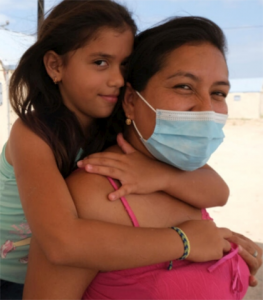Colombia grants legal status to a million Venezuelans
Venezuelan migrants who have fled to Colombia since the collapse of their country’s economy and the political crisis that sparked it in 2016 will be granted legal status.
The move will give nearly a million undocumented migrants rights to legal employment, health care, education and banking services for ten years.
 Colombian president Ivan Duque says the policy is driven by both empathy and pragmatism.
Colombian president Ivan Duque says the policy is driven by both empathy and pragmatism.
“They’ll likely stay for more than a decade. So it’s better to…open them the opportunity to contribute also to the Colombian economy,” Duque told international media.
Venezuelan arrivals to Colombia are not confined to camps but live scattered across the country.
Colombia has received the bulk of the exodus from neighbouring Venezuela since 2015.
When many other South American countries shut their border with Venezuela, Colombia offered a series of two-year permits giving around 750,000 Venezuelans the right to work and health care between 2017 and 2020.
The new legalisation policy covers an extra one million additional migrants.
Nearly all the roughly 1, 7 million Venezuelans who have come to Colombia since 2015 will now have some form of legal status. And new arrivals over the next two years will also be included.
Colombians are no strangers to civil strife. More than eight million of the nation’s 50 million people were displaced by the decades long war between government forces and FARC guerrillas.
A peace agreement in 2016 has reduced significantly but not totally ended the conflict.
Because of this history, international aid organisations such as the United Nations High Commissioner for Refugees and World Food Program have worked in Colombia for decades.
Now these groups are directing their efforts to help Colombia’s humanitarian work with Venezuelans.
But the legalisation risks inflaming anti-migrant sentiments in Colombia.
In some border areas, some groups are blaming rising violence on migration although evidence shows migrants are more likely to be victims of crime than perpetrators.
Colombia still has issues of its own. Dissident FARC members, other guerrilla groups, drug cartels and insurgencies continue to fight over resources and territory, displacing more than 70,000 people last year.
The Colombian government is appealing to the UN and international agencies will help it fulfil its goal of welcoming the 1.7 million Venezuelan refugees and migrants.












